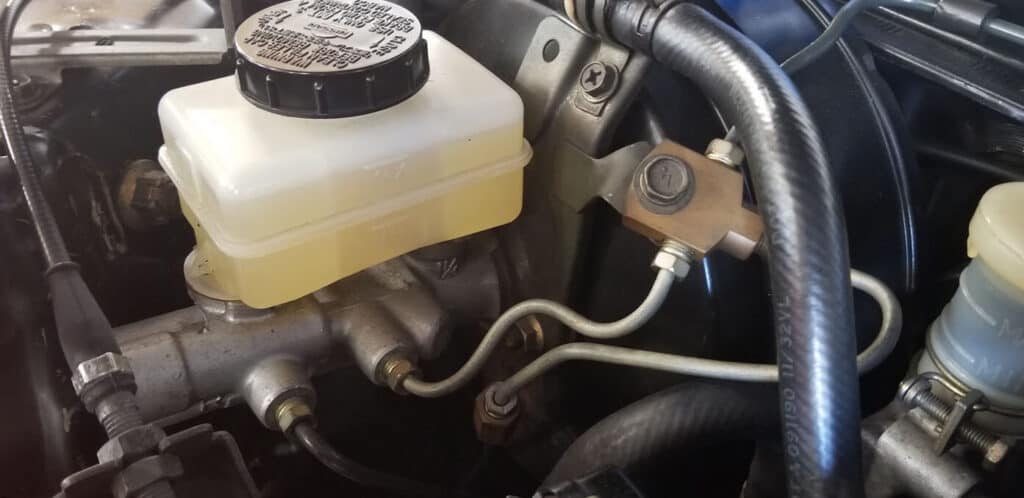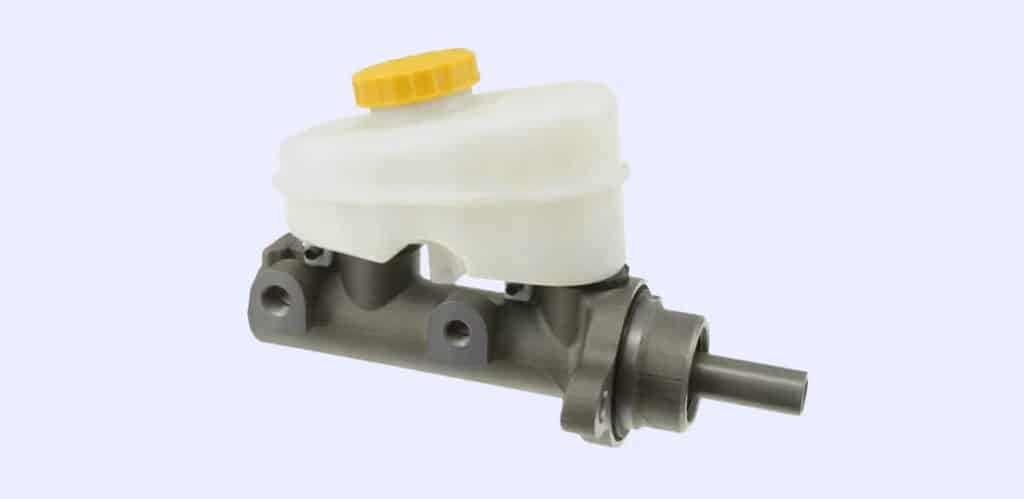The Importance of a Properly Functioning Brake Master Cylinder
Have you ever wondered what would happen if your car’s brake master cylinder failed? It’s a terrifying thought, as this crucial component plays a significant role in the overall safety and performance of your vehicle’s braking system. In this article, we’ll explore the brake master cylinder, its function, symptoms of a bad one, and the risks of driving with a faulty unit. Buckle up as we take you on this informative ride.
Brake Master Cylinder Explained: Its Role in Your Vehicle’s Braking System
The brake master cylinder is the heart of your car’s hydraulic braking system. It converts the pressure you apply to the brake pedal into hydraulic pressure, which is then distributed to each wheel’s brake calipers or wheel cylinders. This hydraulic pressure pushes the brake pads against the rotors or the brake shoes against the drums, creating the friction needed to slow down or stop your car.

Symptoms of a Bad Brake Master Cylinder
If your brake master cylinder is malfunctioning, you may notice the following symptoms:
• Spongy or Unresponsive Brake Pedal: A faulty master cylinder can cause a spongy or unresponsive brake pedal. This is due to a loss of hydraulic pressure or air entering the brake lines.
• Leaking Brake Fluid: A leaking brake master cylinder can cause brake fluid to pool around the unit, leading to a noticeable drop in fluid levels in the brake fluid reservoir.
• Warning Lights on the Dashboard: Your vehicle’s dashboard may display warning lights, such as the brake warning light or ABS light, indicating an issue with the brake system.
• Uneven Brake Pad Wear: A bad master cylinder can cause uneven brake pad wear, as it may not distribute hydraulic pressure evenly to all wheels.
The Dangers of Driving with a Bad Brake Master Cylinder
Driving with a faulty brake master cylinder is dangerous for several reasons:
• Reduced Braking Efficiency: A bad master cylinder can compromise your braking system’s efficiency, making it difficult to slow down or stop your vehicle quickly.
• Potential Brake Failure: A severely damaged master cylinder may lead to complete brake failure, putting you and others on the road at risk.
• Increased Risk of Accidents: The risks mentioned above can significantly increase the likelihood of an accident, resulting in injuries, fatalities, or property damage.
Diagnosing a Bad Brake Master Cylinder: What to Look For
If you suspect your brake master cylinder is faulty, consult a professional mechanic for a thorough inspection and diagnosis. They will check for fluid leaks, test the brake pedal’s responsiveness, and assess the overall condition of your braking system.
Brake Master Cylinder Replacement: When and How to Do It
When it becomes evident that your brake master cylinder needs replacing, you have two primary options to consider. The first is a DIY replacement. If you possess considerable experience with car repairs and feel confident in your ability to tackle this task, you may choose to replace the brake master cylinder yourself. However, be aware that this job requires specialized tools, a thorough understanding of your vehicle’s braking system, and a meticulous approach. Attempting this repair without the proper knowledge or equipment may lead to further issues, so proceed with caution if you decide to take the DIY route.
On the other hand, most drivers will find it safer and more reliable to seek professional repair services. By enlisting the help of a qualified mechanic, you can ensure that your brake master cylinder is replaced correctly and that your entire braking system is functioning optimally. Mechanics possess the necessary expertise and specialized tools to perform the job efficiently, and they can also identify any other issues that may need addressing within your braking system. In the interest of safety and reliability, opting for professional help is often the best course of action when it comes to replacing your brake master cylinder.
Preventive Maintenance: Keeping Your Brake Master Cylinder in Good Condition
To keep your brake master cylinder functioning optimally and avoid potential issues, it’s essential to practice regular preventive maintenance. This includes consistently monitoring your brake fluid levels and topping them off as needed, using the recommended brake fluid type specified in your vehicle’s owner’s manual. In addition, be vigilant for any signs of brake fluid leaks around the brake master cylinder or in the engine compartment. If you notice any leaks, address them immediately to prevent further damage. It’s also crucial to pay attention to any warning signs or symptoms of a failing brake master cylinder, such as a spongy brake pedal or warning lights on your dashboard. By taking these preventive measures and ensuring your braking system is well-maintained, you can extend the life of your brake master cylinder and enjoy a safer, more reliable driving experience.
Importance of Regular Brake System Inspections
To ensure the safety and performance of your vehicle, it’s crucial to have your brake system inspected regularly by a professional. They can identify any potential issues early, helping you avoid costly repairs and minimizing the risk of accidents. Ideally, your brake system should be inspected at least once a year or more frequently, depending on your driving habits and the recommendations in your vehicle’s owner’s manual.

Conclusion: Don’t Risk Your Safety by Driving with a Bad Brake Master Cylinder
Driving with a faulty brake master cylinder is a gamble you don’t want to take. Not only can it lead to reduced braking efficiency, but it can also result in complete brake failure, putting your life and the lives of others at risk. By recognizing the symptoms of a bad brake master cylinder, seeking professional help for diagnosis and repairs, and maintaining a regular inspection schedule, you can ensure the safety and performance of your vehicle’s braking system. Remember, when it comes to your brakes, it’s better to be safe than sorry.
